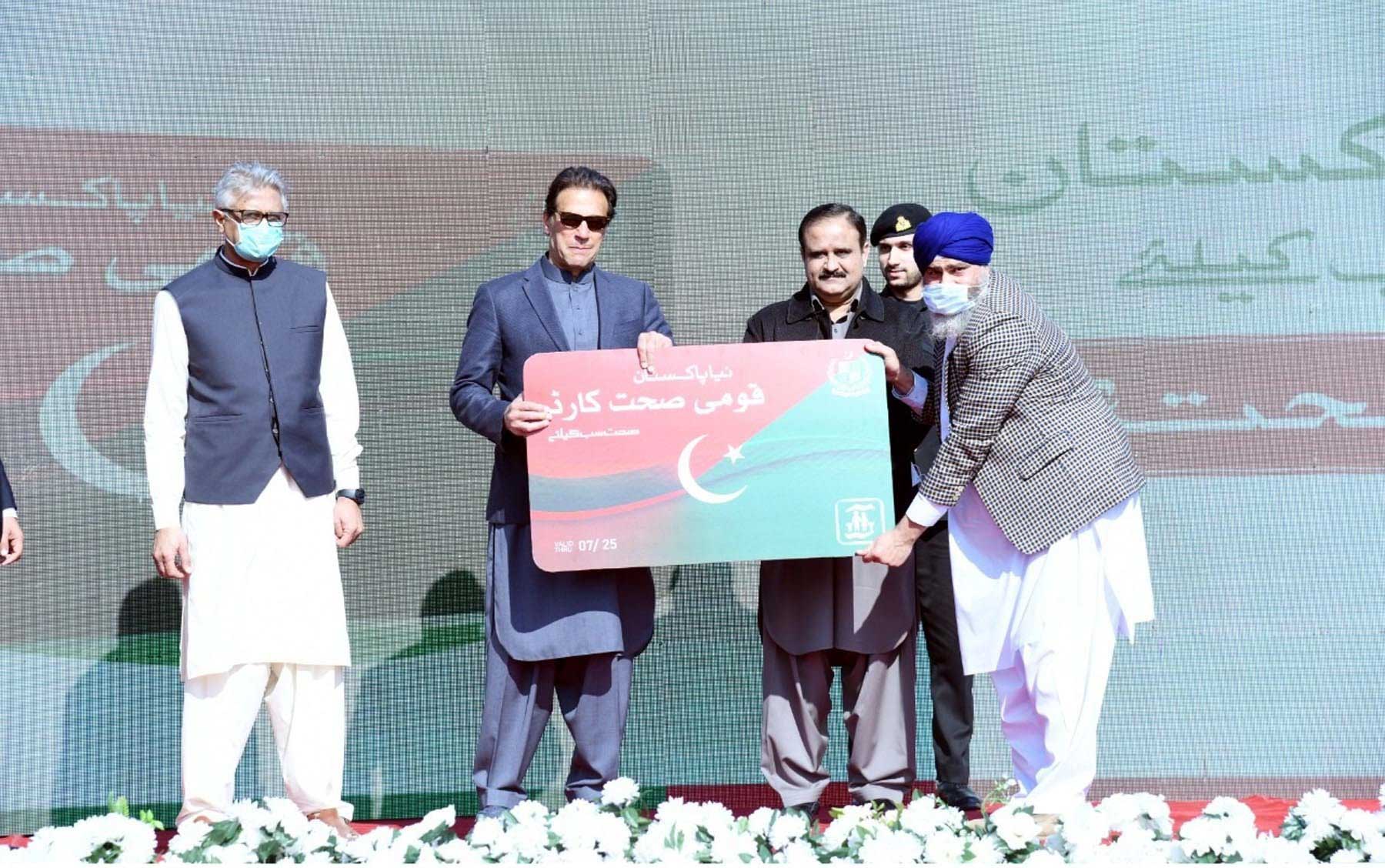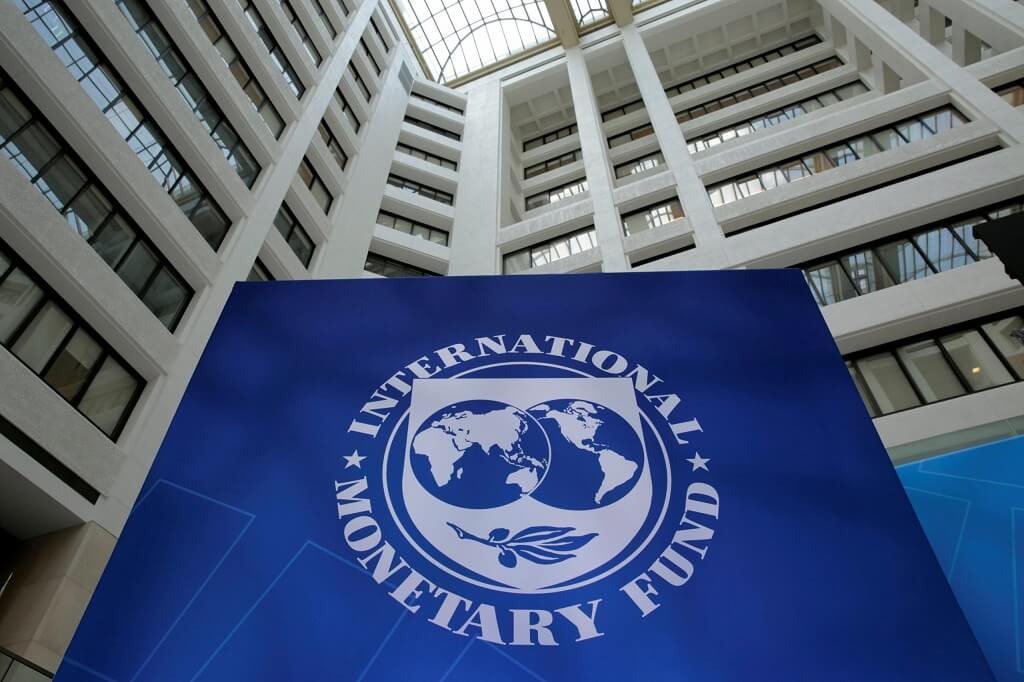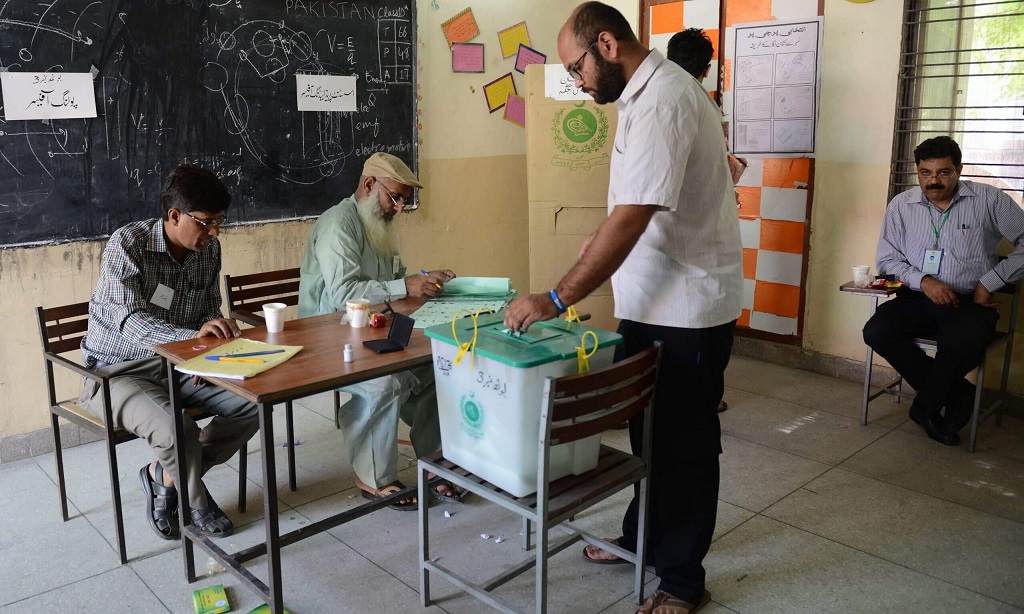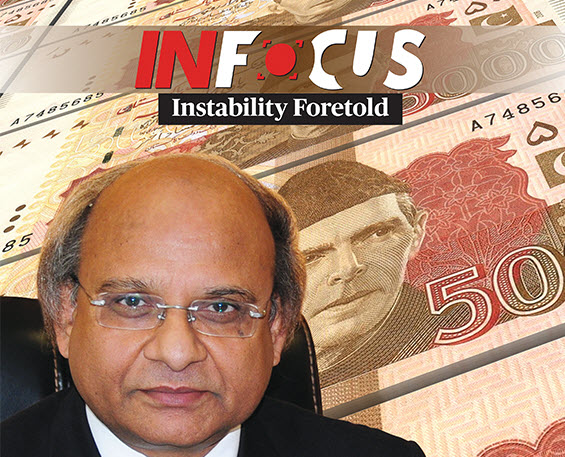Pakistan’s economy is passing through the most difficult phase of its history. Yet, if one looks at the numbers, Pakistan’s economy was doing reasonably well until February-March 2022. The real GDP growth for fiscal 2021-22 — announced on June 9 – was recorded at 6% as against the 5.7% a year ago. The average GDP growth of the last two fiscal years is close to 6%, which is robust. Not many countries across the world recorded this kind of growth during this period.
The large-scale manufacturing shot-up by 10.4%, which reflects the strong industrial activity in the country. The investment-to-GDP ratio in 2021-22 is 15.1% as against 14.6% of last year – again showing an increase. The agriculture growth — barring wheat crop — did well.
When the final numbers of fiscal 2021-22 will be out, Pakistan’s exports – led by the textile sector — will show a healthy growth of 28%, which is very strong. In one of my television interviews, I shared the platform with the All Pakistan Textile Mills Association (APTMA) chairman, and according to him, the export sector significantly benefited during the last three years as compared to the previous 70 years. This is the version of the APTMA chairman. This means that our textile sector was booming. According to the APTMA chairman, textile exports this year would be around $20 billion, and if the current policy continues, they would be targeting $26 billion in fiscal 2022-23. Remittances are also all set to hit history’s highest mark of $31-32 billion in fiscal 2021-22.
PTI’s weaknesses
However, there were challenges also. I think the previous government did not perform well on at least two fronts. First is the persistence of high inflation in general, and food inflation in particular. Food inflation hits the country’s poor and even the middle-income people. Under the PTI rule, the food inflation remained in double-digit all through. There were two reasons for this. First, the Covid-19 pandemic disrupted the supply-chain and caused bottlenecks around the world, resulting in higher food and commodity prices. Pakistan remains a net importer of a number of vital food items and other commodities. Therefore, we bought them at higher prices from the international market. It means the inflation was the result of exogenous shocks.
Coupled with this, Pakistan also witnessed what I call the “Reza Baqir” effect. Dr Reza Baqir effect is synonymous with currency’s devaluation which he guided as the governor of the State Bank of Pakistan. We devalued our currency too much and too fast. This made the life of the people so difficult that on one hand, the international commodity prices were rising and, on the other, the value of Pakistani rupee was declining, resulting in a double inflationary pressure. This adversely affected the people with fixed income, especially the poor and the middle-class. Who installed Dr Reza Baqir as the SBP governor? On whose instructions, Dr Baqir was devaluing the currency? Former premier Imran Khan, must answer this. Such decisions caused irreparable loss to Pakistan’s economy.
According to All Pakistan Textile Mills Association (APTMA) chairman the export sector significantly benefited during the last three years as compared to the previous 70 years
The PTI government’s failure in curbing the rising import bill was also a major blunder. For the last four years, I have been urging the government to pursue a selective and yet aggressive policy to curb imports. Neither the previous government paid attention to this nor the present government appears serious about it. This has resulted in the ballooning of the country’s import bill to around $70 billion.
So, on the one hand, we were earning dollars, but at the same time, there was massive leakage of the US currency in the shape of imports that affected our trade and current account balance, putting further pressure on the exchange rate. As a result, the country is now passing through a balance of payment crisis.
PTI’s performance
However, several economic indicators improved significantly under the PTI government. The FBR’s performance, in my opinion, was excellent. The revenue growth thus far has been recorded at around 27-28%, which is robust. The government also introduced measures like ‘the track-and-trace-system,’ which resulted in the availability of 2.2 million additional sugar in the market. This also contributed to our large-scale manufacturing growth. Because of the track and trace system, additional sugar was reported and mill owners were forced to pay taxes as well.
Similarly, the government introduced the ‘point of sale’ and targeted to bring some 50,000 large shopping malls and shops under the tax net. However, the FBR could not register more than 5,000 big shops and malls so far. Yet, at least some progress has been made.
On the social protection front, the PTI government’s performance was impressive, though it did not receive much attention because its spokespersons did not effectively highlight all the good work as they were busy confronting political opponents.
The PTI government’s ‘Ehsaas’ Programme has been declared one of the most successful in the developing world by international institutions. Under this programme, the government did a marvelous job, particularly at a time of the pandemic, which had crippled the business and economic activities across the world and rendered countless people jobless. Under these difficult circumstances, the ‘Ehsaas’ programme supported the poor segment of the society and gave them relief.

Similarly, the PTI government’s ‘Sehat’ Card programme — which in the western world is known as health insurance — has been an excellent initiative benefiting the poor and the low-income group people. Now they can go to a hospital for treatment at the government expense to the tune of Rs.1.0 million. This has been a wonderful project because if a poor person gets sick, the family goes under debt – often for the lifetime.
Then, there was another programme, the ‘Ehsaas’ scholarships, aimed at developing the human resource. I am teaching at the NUST University where students are given admissions purely on merit. I know the importance of the ‘Eshaas’ scholarship programme. People from far-flung areas, who are extremely poor, could now get admission even in NUST on merit now. Under ‘Ehsaas’ scholarships, thousands of deserving students are studying in universities across Pakistan. If parents’ income is less than Rs45,000, a student is eligible for this scholarship. Students have to just maintain their grades to complete their education free-of-cost. And imagine, if a person from a poor family and a far-flung area graduates from a university like NUST, the fortunes of his/her entire coming generation will change for the better. How can you quantify this contribution? That young man or woman who graduates from universities will be contributing to the economic development of the country for at least the next five decades. Can anyone be counting the contribution that he or she will be making to society? But these initiatives of the previous government have not been highlighted properly.
Another initiative of the previous government was ‘Langar Khana’, where the poor and homeless people eat, stay and spend nights free-of-cost. Daily we see people coming to cities for work. Many of such unemployed people used to beg and spend nights on the roadsides, but the previous government provided them a shelter. But I did not see any publicity from the previous government’s media wing to highlight this very important initiative. I don’t belong to any political party, but justice demands that all such good, pro-people initiatives must be highlighted.
Challenges for the new government
Now, let’s turn our attention to the current government and its challenges. The first one is the high inflation rate, which has been going on for the last four years. The Russia-Ukraine War, coupled with the rising oil prices in the international market, has aggravated the situation. But the Shehbaz Sharif-led government moved like a rudderless ship in its initial weeks in power, and wasted precious time. This caused immense damage to Pakistan because the currency devalued from Rs176 to Rs200 plus against the dollar. This massive devaluation added to the inflationary pressure as oil prices had to be adjusted upward. As a result, now the Shehbaz government is taking such brutal measures which were previously unheard off. The raising of petrol prices by Rs60 in 10 days was unimaginable. Only those can take such a decision, who have no heart and feelings.
The PML-N-led government will further raise the prices as it has surrendered to the IMF. But if we continue to bow to the IMF dictation, the oil prices will jump to Rs260 by July 1.
Will this help improve the economy? Will the increased cost of production lead to enhanced production? This will only lead to a fresh round of inflationary pressure. As a result, the SBP will raise the interest rate, which would discourage investments in the country.
These policies would cause unbelievable damage to the economy. I am expecting things to aggravate further by September and inflation to soar to around 20%. Against this backdrop, the SPB would also raise the interest rate.

But how can we check inflation which is the supply-side phenomenon by raising the interest rates? The adjustments in interest rates can address demand-side issues. In developing countries like Pakistan inflation cannot be curbed through jacking up interest rates.
If the government itself is creating inflationary pressure by raising the prices of utilities and devaluing the currency, it should not expect that an increase in the interest rate would curb inflation. It is a self-contradictory policy. That’s why I am saying that the economy will further deteriorate. Why? Because, the government has built a case to go to the IMF’s 23rd programme, which may start from October 2022.
The Shehbaz-government has built a case to take Pakistan back to the IMF. We have definitely not learned the lesson even from our recent past. What happened to the country in the last three years or so? Has Pakistan’s economy improved since 2018 after implementing the IMF policies? The answer is absolutely not. And if we go to the IMF for the next three years, should we expect any improvement? No. The situation will only deteriorate. It appears like a race to the bottom. Pakistanis must learn to live without the IMF. Nobody will come from outside to improve our economy; it is we who will have to improve and fix it.
Pakistan faced a difficult economic situation in the past as well. I am a witness to the post-nuclear explosion sanctions when all the inflows were stopped but Pakistan continued to meet external debt obligations. As a result, our foreign reserves declined to as low as $400 million but we bounced back.
Today, Pakistan economy faces even a bigger challenge as compared to the post-1998 sanctions imposed on the country to punish its nuclear tests in response to its archenemy, India. The difference between the two eras is that at that time, the government took it as a challenge and addressed it but today, no one is ready to lift the cross. We are just doing some firefighting and killing time. The second difference is that after the 1998 nuclear explosions, there was no such extreme polarization as we are witnessing today in the country. This is taking a toll on the economy, which is dangerous. Currently, there is a huge trust deficit among the political parties. No one trusts the other. Therefore, political polarization is widening with each passing day.
There is no sane voice, which could unite the political leadership and take Pakistan out of the current economic morass. Yes, the current economic crisis is totally different from the economic crisis of post-1998 nuclear explosions and sanctions. If we have to pull the country out of the crisis, sane voices must prevail.
Unfortunately, we have crushed our economy by raising oil prices and devaluing the currency. Political leadership must realise the gravity of the situation and take immediate corrective measures.
Moody’s has changed Pakistan’s outlook from stable to negative and told the world that Pakistan’s default risk has been exacerbated. Our bonds in the international market have also taken a hit, and their high swap rates reflect that the risk of default is getting higher and higher. Now Pakistan cannot float new bonds in the international market because no investor will invest in such a negative outlook. Virtually, we have exhausted all options. Things will be aggravated further till September so that we build up a case and go to the IMF yet again.
Lost decades
Former SBP governor Dr Ishrat Husain had declared the 1990s as the lost decade of Pakistan. And I say that the years 2008-18 as the second lost decade for the country. There is a similarity in both the lost decades as we went to the IMF for bailouts.
Can we afford another lost decade from 2018-28? Just think about it.
If a country wastes 30 years as lost decades in its 74-year history, will it move ahead? But unfortunately, that is happening now.
In the last 30 years, several countries surpassed us economically. How can we develop with three lost decades?
Instead of going to the IMF, we should plan floating international bonds to get the money Pakistan needs. There are 190 member countries of the IMF. Do you think that they all look towards the IMF to meet their balance of payment obligations?
No, not all. Hardly 16 to 18 countries like us go to the IMF as they have failed to manage their own economy. How do the rest of the countries – many weaker than us — run their economy?
Countries like Afghanistan have more stable currency than us and the war-torn country faces no crisis of balance of payment. Why? Because the IMF has not set its foot there. The day the IMF will set foot in Afghanistan, Afghans will start crying like us.
Take the example of Bangladesh, since its independence, in the initial phase of turbulence, it went to the IMF twelve times. Finally, it came out of the IMF clutches and is now managing its economy on its own. Bangladesh’s currency is stable and no one tells them about the “real effective exchange rate”.
Here, we have a mafia which raises the slogan of a “real effective exchange rate”. Why is no one raising the so-called slogan in Bangladesh, where they have better economists than us and they also work in the IMF and the World Bank. Since 2002, the exchange rate of the Taka is the same at 77-78 against the dollar, and its exchange reserves are $41 billion as compared to Pakistan which has less than $10 billion. How do they run their country? The simple answer is that they don’t look towards the IMF. How has India managed its economy and their currency stable for several decades? Pakistanis must think about it. Save yourself from the IMF.
So our hands have been tied and I see things aggravating till September to build a case for yet another IMF programme. They say that if the IMF stops funding, no other lender will lend funds to Pakistan. Let me clarify it. In the 1990s, each Pakistani government used to get one tranche from the IMF and then get out of the programme. We were known as a one tranche country. Did the World Bank, the Asian Development Bank and other lenders lock their offices in Pakistan? No, they were lending to Pakistan.
Similarly, in 2008 Pakistan went to the IMF and in 2010 it came out. During that period too, the World Bank and the Asian Development Bank lent money to Pakistan.
The mafia starts crying the IMF mantra whenever the government changes in Pakistan. An echo system has been developed here. Things are aggravated on purpose here. Pakistan’s outlook will further be degraded to ensure that Pakistan doesn’t go to the bond market or tap any other alternative sources of funding. The only source available would be the IMF. All of us must think about it.
What is the solution?
Elections are the only way out.
I think, with this extreme nature of political uncertainty, where only one thing is discussed: who is to be booked in a case and who is to be arrested, it is absurd to think that the economy could flourish in such an environment. We have to do away with this logjam. There is only one solution; hold free, fair and transparent elections. The sooner the better. If you delay elections out of your political whims, this deepening political and economic crisis will continue. Is this in the interest of Pakistan? Is this we want to bequeath to our younger generation? Do we want our young generation to be beggars? Do away with this personal ego, for the sake of the people and the country at large.

I appeal to those in power to conduct free, fair and transparent elections at the earliest as we have reached the point of disequilibrium. Free, fair and transparent elections are the only solution to bring Pakistan back to equilibrium.



